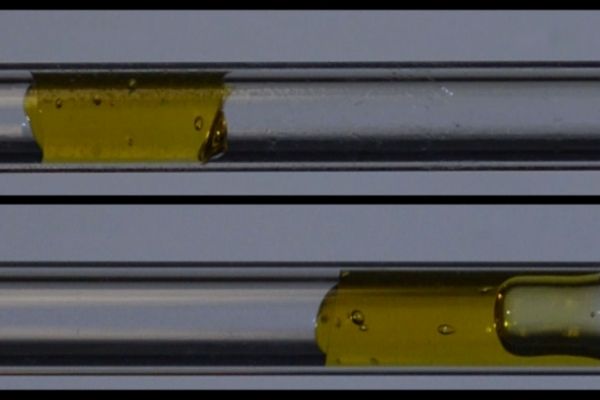An MIT research team that has already conquered the problem of getting ketchup out of its bottle has now tackled a new category of consumer and manufacturing woe: how to get much thicker materials to slide without sticking or deforming.
The slippery coatings the team has developed, called liquid-impregnated surfaces, could have numerous advantages, including eliminating production waste that results from material that sticks to the insides of processing equipment. They might also improve the quality of products ranging from bread to pharmaceuticals, and even improve the efficiency of flow batteries, a rapidly developing technology that could help to foster renewable energy by providing inexpensive storage for generated electricity.
These surfaces are based on principles initially developed to help foods, cosmetics, and other viscous liquids slide out of their containers, as devised by Kripa Varanasi, a professor of mechanical engineering at MIT, along with former students Leonid Rapoport PhD ’18 and Brian Solomon PhD ’16. The new work is described today in the journal ACS Applied Materials and Interfaces.
Read more at Massachusetts Institute of Technology
Image: A gel-like yield stress fluid, top, moves as a plug without shearing in a tube with the new surface coating. At bottom, the same fluid is seen shearing while it flows in an uncoated tube, where part of the fluid gets stuck to the tube while part of it continues to flow. Images courtesy of the researchers


